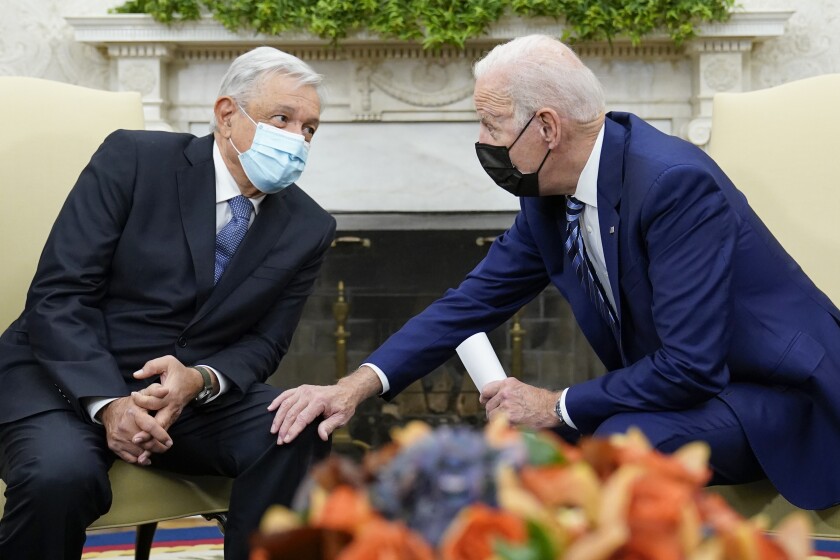What is behind Russia’s “invasion of Ukraine”: About Washington’s tactical and strategic motives
“Russian invasion” is another repetition of the script of the Hollywood film “Wag the Dog”
Statements made by Western media, US officials and Joseph Biden himself, who repeatedly announced “the exact date of the Russian invasion of Ukraine”, are perceived by many with irony. It is often heard that the whole performance with the “Russian invasion” is another repetition of the script of the Hollywood film “Wag the Dog”, according to which the American authorities imitated the war in Albania in order to save the president’s falling approval rating.
The current American administration, indeed, often acts in the logic of Hollywood producers. However, this “movie” often leads to tragic consequences.
Let’s recall how a year and a half ago, the same structures that are currently promoting the scenario of the “Russian invasion of Ukraine” promoted the theme of a “coup in the United States”, which, allegedly, Donald Trump was supposed to commit after losing the election. The result was a political staging of the “storming of the Capitol” with the involvement of some protesting Trump supporters, which ended with quite real human casualties. In any case, the Republican Party activist Ashley Babbitt was demonstratively shot by the police at point-blank range, as is said, “in front of the camera.”
There is reason to believe that in the context of the “Russian invasion”, the ruling financial and political group in the United States is preparing something similar to the “storming of the Capitol” in Ukraine.
At the same time, a fake about an “invasion” or an event equivalent to this invasion can, in principle, be created without any participation of the Russian Federation. It can be not only a provocation in Donbass, but also an imitation of an attempted coup in Ukraine or damage to the Ukrainian gas transmission network. By the way, neither one nor the other is something fundamentally new and unusual for Ukraine. For example, performances with a “coup” were repeatedly staged under Poroshenko (then Nadezhda Savchenko was accused of trying to shoot Rada deputies with a grenade launcher), and under Zelensky, who informed the media about the “conspiracy of oligarchs” and even the date of its implementation.
Any of these imitations can be passed off as the “beginning of a Russian invasion” and, at a minimum, initiate the process of introducing tough anti-Russian sanctions. At the same time, the maximum program can be the entry of US troops and their NATO allies into Ukraine and the fully-fledged American occupation of this country.
It should be understood that the American administration has enough motives to give the go-ahead to organise such a “show”. On the one hand, we are talking about tactical factors related to the domestic political situation in the United States. There are no achievements, the wave of economic problems is growing, the withdrawal of troops from Afghanistan resembled a debacle and became, perhaps, the main national disgrace of America in the 21st century. And ahead of the midterm elections, in which the Democratic Party may lose control of Congress and the Senate and behind which looms the prospect of the return to power of the hated Democrats Trump.
In this situation, the virtual “protection of Ukraine from invasion” and the equally virtual “victory over Russia” can become an important argument in the struggle for the sympathies of the American voter who is poorly versed in geography.
But, in addition to tactical motives, there are also strategic factors. The American economy is dominated by a domestic debt of $30 trillion, inflation is rising, which the American man in the street is not used to. In this situation, the United States is betting on a scenario in which Europe will have to pay for the difficulties in the American economy, including buying American liquefied gas at exorbitant prices instead of Russian natural gas supplied through pipelines.
Ultimately, we are talking about turning the European Union into an economic and geopolitical “island” by severing all ties and contact in the eastern direction. Then, being cut off from the rest of Eurasia, the “island of Europe” will become completely dependent on the United States, and the European economy will turn into a kind of “serf” serving the American “feudal lord”.
In addition to the economic agenda, there is also a geopolitical agenda, where the ruling financial and political group in the United States is betting on the maximum weakening of Russia. Russia is for the US not only the main military opponent, who has pulled ahead in the arms race thanks to the creation of hypersonic weapons, but also an ideological opponent, personifying the values against which the American liberal elite is waging a fully-fledged “cultural war” today. With the help of a new round of sanctions, the ruling group in the United States expects to bring down the Russian economy, provoke popular discontent, destabilise the political situation, and then try to launch a scenario of “great upheavals” in our country.
It is obvious that the potential initiators of the play about “Russia’s invasion of Ukraine” are aware that their European partners are not enthusiastic about what is happening. First of all, the political class of France and especially Germany would like to leave Ukraine in its sphere of influence. And, of course, it is not ready for the transformation of Europe into an “island”, which would mean in the foreseeable future the transformation of Europeans into vassals of the United States, who do not have the right to vote in making any decisions.
In recent days, even Britain, which has been operating in the wake of the American “general line” until now, has begun to demonstrate a desire to play its own game in the Ukrainian direction. After the visit of Defence Minister Ben Wallace to Moscow, the Ukrainian ambassador in London Prystaiko unexpectedly made a statement that Ukraine, they say, could give a commitment not to join NATO in order to “avoid war.” After that, this message was approvingly picked up by the Under-Secretary of State for the British Armed Forces, James Heappey, who said that London would support Ukraine’s possible decision to refuse to join NATO.
It is obvious that the producers and screenwriters of the invasion of Ukraine understand the difference between the perception of a fake story by an American audience that has a bad idea of where Donetsk or Kiev is located, and the reaction of European allies to it, who need to offer something that has at least some plausibility features.
For their part, the Kiev authorities have recently begun to realise that the American masters have turned them into a kind of bargaining chip and are preparing them for the role of a collective “sacral victim”. And it’s not even about the huge economic and image losses of Ukraine. The point is that the White House and the State Department do not consider the current Kiev authorities to be particularly valuable and whose security should be provided by American cover.
Source: https://russtrat.ru/en/comments_/16-february-2022-1508-8835
Región: América Latina





Déjanos tu comentario